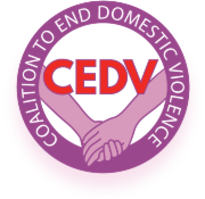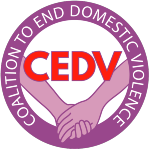PRESS RELEASE
Contact: Mike Buchanan
Telephone: +44 7967 026163
Email: davia@endtodv.org
Marriage Is One of the Strongest Safeguards Against Domestic Abuse. Is the Istanbul Convention Helping or Hurting?
March 13, 2023 – Numerous studies have found that persons who are married experience far lower rates of domestic abuse, compared to couples in a dating relationship. But one-sided domestic violence laws serve to discourage men from entering into married relationships. This raises the question, Is the Istanbul Convention doing more harm than good?
Numerous studies have found that being married is one of the strongest protections against domestic violence against men and women:
- A survey of over 3,700 persons in Portugal found that married men and women were less likely to engage in violent behavior, compared to persons in dating relationships (1).
- A global review of 228 studies to identify domestic violence risk factors found that compared to persons in co-habiting relationships or separated persons, married individuals were at “lowest risk.” (2)
- A comprehensive, 2,300-page review of the domestic violence research concluded, “Married couples [are] at lower risk than dating couples.” (3)
Over the past six decades, Europe has seen a precipitous decline in marriage. Eurostat reports that since 1964, “the crude marriage rate in the EU has declined by more than 50%.” (4) This trend has troubling implications for efforts to curb partner abuse.
In Spain, passage of the “VioGen” domestic violence law in 2004 (5) resulted in more than 2.2 million domestic violence proceedings over the next 18 years, mostly against men (6). As a result, many men went on a marriage strike. Before the enactment of VioGen in 2000, the marriage rate in Spain was a robust 5.4 per 1,000 persons. Twenty years later, that number had plummeted to 1.9, one of the lowest in Europe (7).
VioGen and the Convention of Istanbul share three deficiencies:
- Address domestic violence only against women, ignoring the fact that men and women are equally likely to be victims of domestic abuse (8).
- Ignore the presumption of innocence and other due process protections.
- Make no provision for the use of counseling, even though therapy is the recommended approach to address minor instances of partner abuse.
Leading members of the European Parliament have warned the Convention of Istanbul “generates prejudices and mistrust, making peaceful coexistence within the family impossible.” (9)
The Domestic Abuse and Violence International Alliance urges the European Union to remedy the defects of the Istanbul Convention. Or face the possibility that the Convention will worsen the problem of domestic abuse across Europe.
The Domestic Abuse and Violence International Alliance – DAVIA — consists of 74 member organizations from 29 countries in Africa, Asia, Australia, Europe, Latin America, and North America. DAVIA seeks to ensure that domestic violence and abuse polices are science-based, family-affirming, and sex-inclusive. https://endtodv.org/coalitions/davia/
Citations:
- https://www.hindawi.com/journals/jcrim/2014/897093/
- https://pubmed.ncbi.nlm.nih.gov/22754606/
- https://domesticviolenceresearch.org/pdf/FindingsAt-a-Glance.Nov.23.pdf
- https://ec.europa.eu/eurostat/statistics-explained/index.php?title=Marriage_and_divorce_statistics#Fewer_marriages.2C_fewer_divorces
- https://es.wikipedia.org/wiki/Ley_Org%C3%A1nica_de_Medidas_de_Protecci%C3%B3n_Integral_contra_la_Violencia_de_G%C3%A9nero
- https://www.saveservices.org/2023/02/consequences-of-the-law-of-gender-violence-and-gender-ideology-in-spain/
- https://ec.europa.eu/eurostat/statistics-explained/index.php?title=Marriage_and_divorce_statistics
- https://docs.google.com/spreadsheets/d/1hf1zRYHNDJjvunWWeoOl33VTVmPADtijzMniAmxBPRE/edit#gid=0
- https://www.publicnow.com/view/EE8611C20C8316FDCD14C01E10F7E0FC79260E97?1675418442


